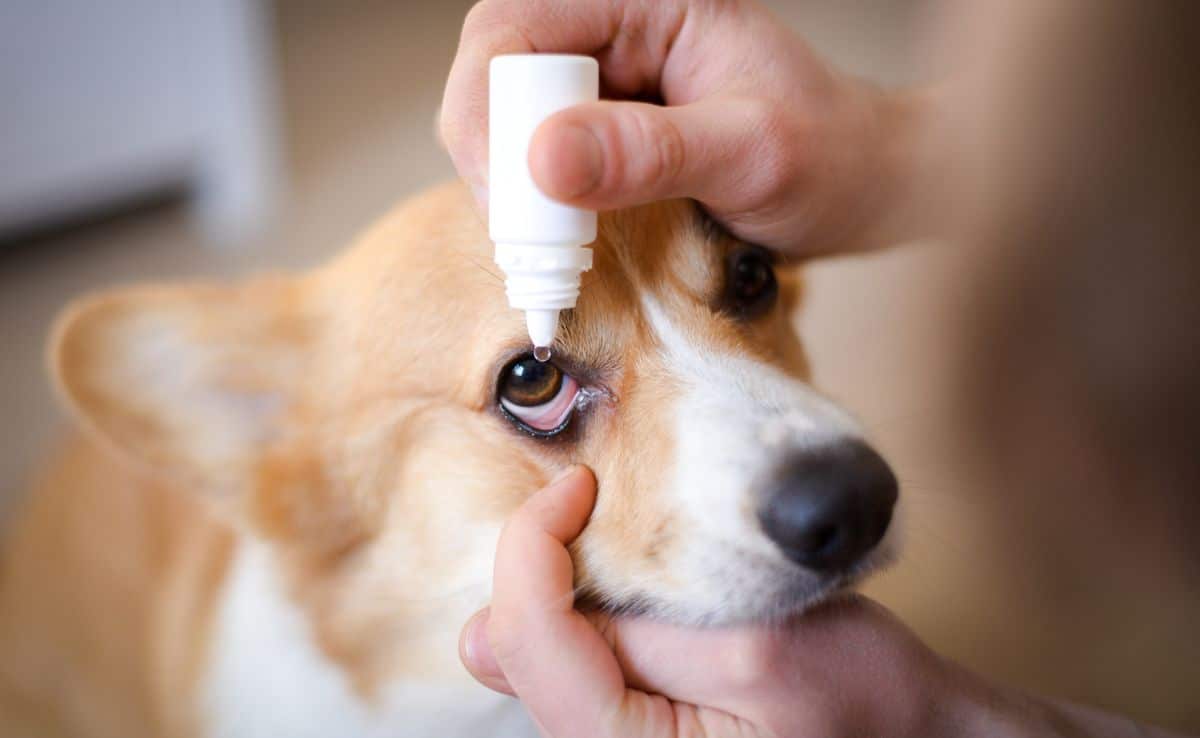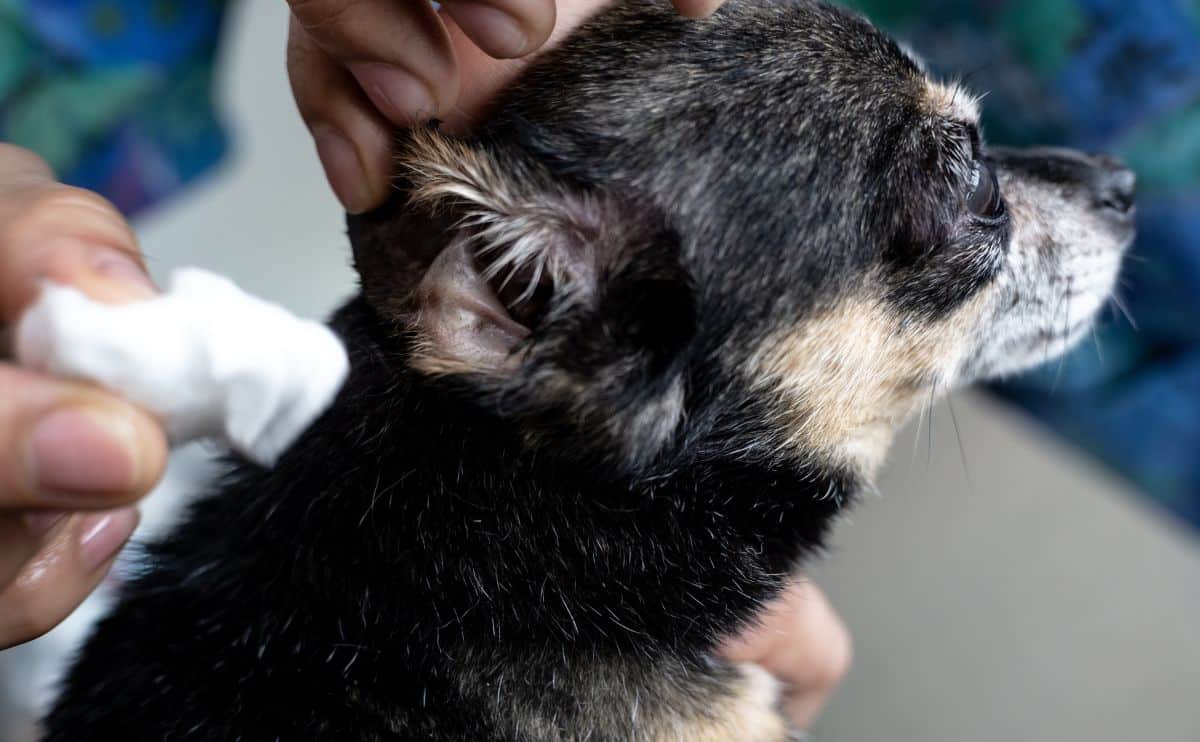How Much Should My Dog Weigh? Healthy Dog Weight Chart by Breed
When you purchase through links on our site, we may earn a commission. Here’s how it works.
Is your dog carrying a little extra weight or looking too slim? Understanding how heavy your dog should be is more than a cosmetic concern. Maintaining a healthy dog weight plays a vital role in preventing disease, supporting joint health, and ensuring your pup lives a long, active life. Even just a few extra pounds can significantly increase the risk of canine obesity-related conditions, especially in small to medium breeds. And if your dog is underweight, it could be a sign of a deeper health issue or an inadequate diet.
Table of Contents
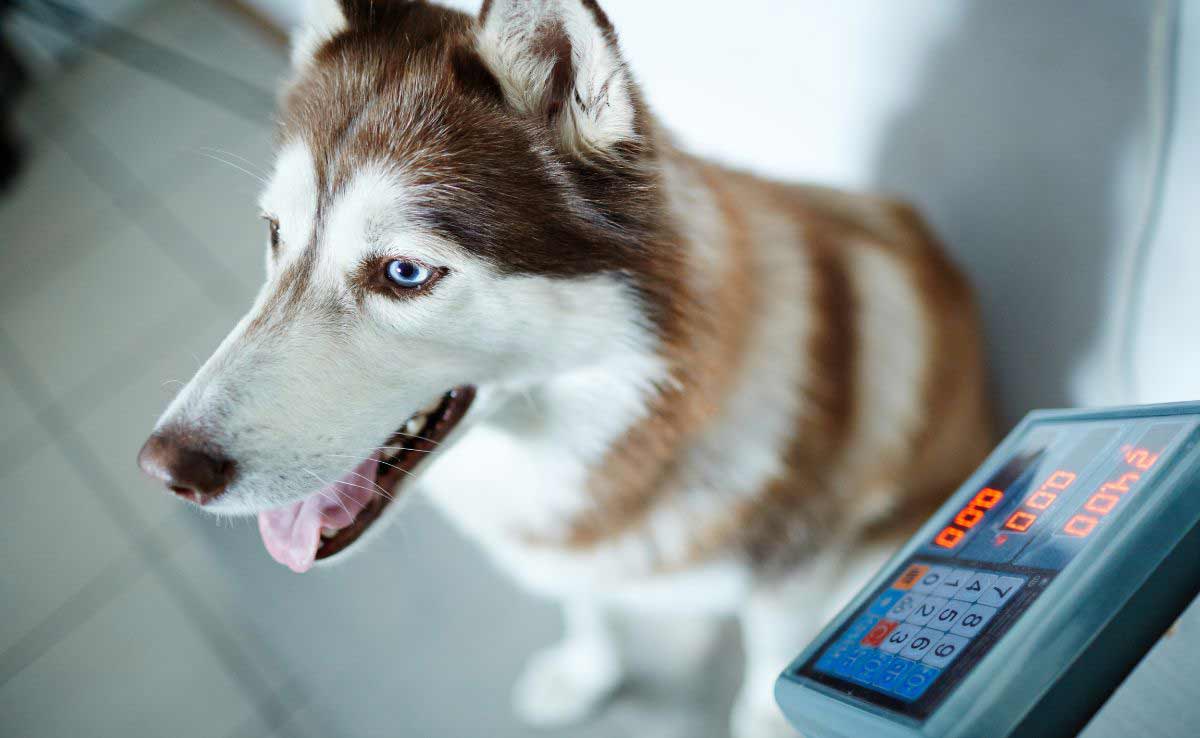
If you’re unsure where your dog stands, you’re not alone. This guide will walk you through everything you need to know, including how to assess your dog’s weight at home using the body condition score (BCS) system, a comprehensive dog weight chart by breed, and expert-backed tips on how to help your dog gain or lose weight safely. You’ll also learn when it’s time to call the vet and how to make lasting, health-focused changes.
So, let’s break down what a truly ideal dog weight looks like and how to help your dog get there.
Why A Healthy Weight Is Crucial For Dogs (Science-Backed Reasons)
Let’s start off by explaining why it is crucial for your dog to maintain a healthy weight. It’s easy to underestimate how much a few extra or too few pounds can impact your dog’s health. But keeping your pup at a healthy dog weight is one of the most important things you can do to improve their quality of life and longevity.
The Health Risks Of Overweight Dogs
Carrying extra weight puts severe stress on your dog’s joints, heart, lungs, and even hormones. According to the Association for Pet Obesity Prevention (APOP), 59% of U.S. dogs are overweight or obese. And even more shocking fact is that many pet parents don’t even realize it. Only 17% of dog owners acknowledged that their pets were overweight. This study found that 84% of dog owners were unaware or in denial about their pups’ body weight and assessed their pets’ body condition as healthy.
That means a lot of pups are silently at risk for:
- Arthritis and joint damage
- Diabetes
- High blood pressure
- Heart disease
- Decreased immune function
- Kidney dysfunction
- Respiratory disorders
- Cancer
- Skin problems
- Chronic inflammation
- Diminished quality of life
What makes a pudgy dog adorably cute can actually be putting them at a much higher risk for serious health consequences. Studies by the American Veterinary Medical Association (AVMA) also found that overweight dogs face a reduced life expectancy by 2.5 years on average. That’s a huge chunk of their life cut short simply by carrying a few extra pounds.
So, even if your dog seems happy and playful, those hidden risks can build up over time. That’s why it’s so important to look beyond the scale and assess how heavy your dog should be based on their body condition and overall health, not just a number.
The Risks Of Underweight Dogs
While obesity gets more attention, being underweight isn’t any less dangerous. An underweight dog might be dealing with:
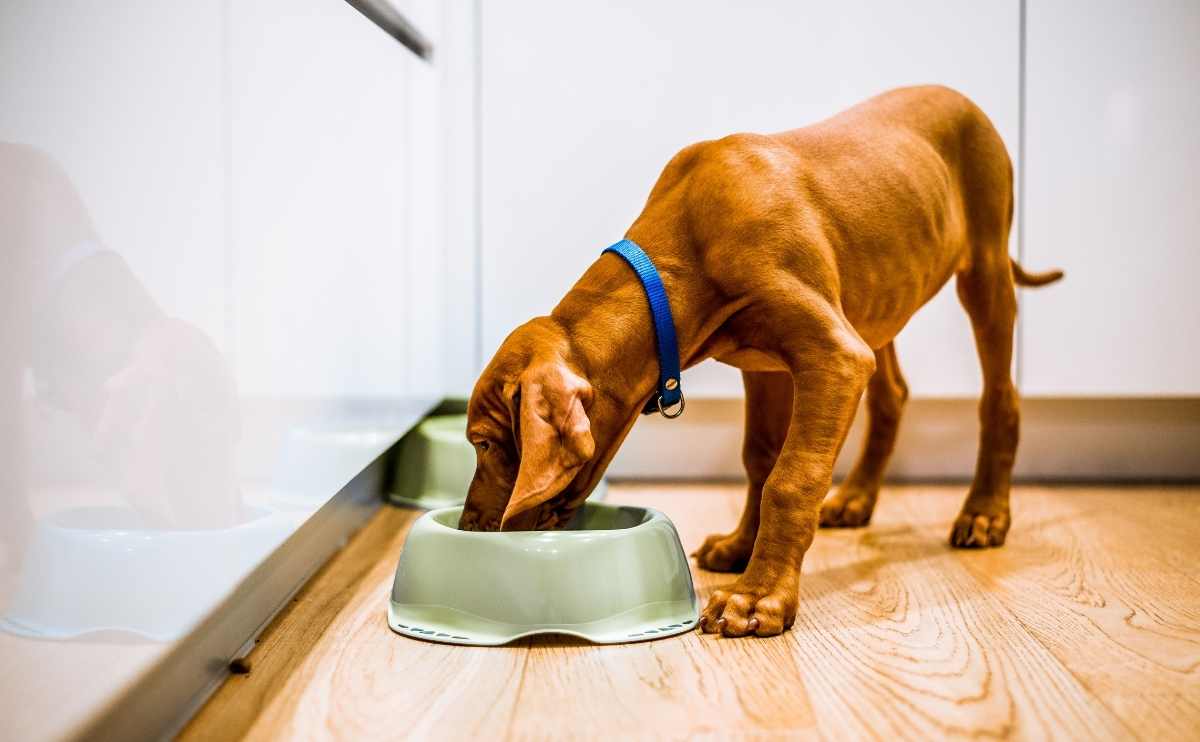
- Underlying Health Issues. Many problems can cause dogs to lose weight, including intestinal parasites, gastrointestinal problems, diabetes, cancer, Addison’s disease, kidney disease, dental disease, stress, and more.
- Insufficient Diet. Dogs can be underweight if they’re not getting the necessary nutrients and calories they need. Make sure you’re giving your pup high-quality dog food. You may want to consider a fresh dog food company that can customize your dog’s diet if he needs to gain weight. Some even give you pre-portioned meals based on your pup’s caloric needs.
- Dental Problems. Having dental health issues can make eating difficult. Gum disease, tooth decay, or broken teeth can make chewing painful for dogs, leading them to avoid eating or eat less than they need, especially if their food is hard or crunchy. That’s why switching to a fresh diet or canned food might be the way to go.
Alternatively, your dog could just be a picky eater, and that’s okay. Some dogs simply aren’t interested in the food you’ve chosen for them, so try switching your pup’s dog food. See our reviews of the best dog food delivery services for many different all-natural options, including fresh meals, personalized premium kibble, and more.
So, if your pup looks too lean or seems to be losing weight quickly, don’t just wait and see; consult your vet. Spotting problems early can make a huge difference.
Why It’s About More Than Just Looks
Keeping your dog at an ideal weight isn’t about body shaming your Beagle. It’s about giving them the best shot at a long, vibrant life. When your dog’s weight is on point, they move more freely, breathe easier, age better, and bounce back from illness faster.
And the good news? Tools like the dog weight chart, dog body condition score, and simple at-home checks can help you take control of your dog’s health, starting today.
How Much Should My Dog Weigh? (Expert Guidelines)
If you’ve ever found yourself Googling “how heavy should my dog be”, you’re not alone. It’s one of the most common and important questions pet parents ask. The truth is, there’s no one-size-fits-all answer. A healthy dog weight depends on several factors, including breed, size, age, sex, and even your dog’s activity level.
Ideal Weight Ranges By Breed & Size
Start with a dog weight chart to get a general sense of the ideal weight range for your dog’s breed. For example, a healthy Labrador Retriever typically weighs between 55 and 80 pounds, while a Miniature Poodle might be in the 10 to 15-pound range. Mixed breed? No problem. You can still use your dog’s build, size, and genetics as a rough guide, and I’ll cover what to do if your dog doesn’t fit the chart.
Why Breed Standards Matter
Breed standards aren’t just about looks. They’re backed by decades of data from veterinary organizations and breeders. These standards help define the ideal dog weight to reduce the risk of joint strain, metabolic issues, and long-term health conditions. They also consider your dog’s frame, not just the number on the scale.
So while a dog weight chart by breed is a great starting point, it’s just one piece of the puzzle. You also need to look at your dog’s body composition, and that’s where the body condition score (BCS) comes in (more on that next).
Is My Dog At A Healthy Weight? (Vet-Backed Assessments)
You’ve probably looked at your dog and wondered, “Is my dog overweight? Or maybe underweight?” It’s not always obvious, especially if your pup is fluffy, big-boned, or just loves to lounge. That’s where the dog body condition score (BCS) comes in. It’s a simple, vet-approved tool to help you figure out if your pup is sitting at a healthy dog weight or needs a little help getting there.
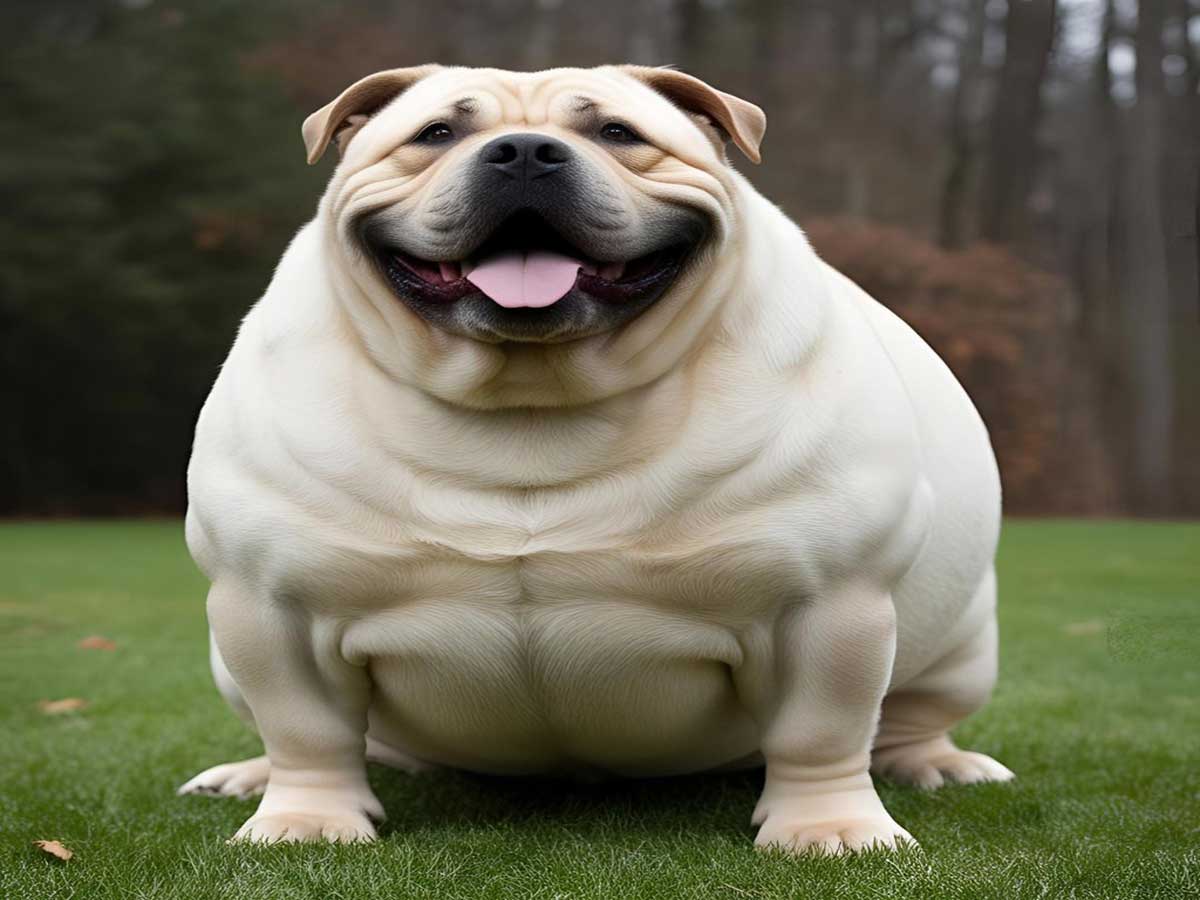
How To Use The Dog Body Condition Score (BCS)
The BCS is like a report card for your dog’s shape. It rates your dog on a 1 to 9 scale:
- 1 – 3 = Underweight
- 4 – 5 = Ideal weight
- 6 – 9 = Overweight or obese
Instead of focusing just on the number on the scale, the BCS looks at how your dog looks and feels. Can you easily feel their ribs without pressing hard? Do they have a visible waist when viewed from above? Is there a tuck-up behind the ribs when viewed from the side? These are the signs vets look for when assessing how heavy your dog should be.
How To Check If Your Dog Is Overweight At Home
Not sure how to do this on your own? Here’s a quick at-home check:
- Step 1: Run your hands along your dog’s sides. You should feel ribs, but not see them prominently.
- Step 2: Look down from above. There should be a defined waist between the ribs and hips.
- Step 3: Now, look from the side. Your dog’s belly should tuck upward from the side, not hang down.
If your dog’s score is a 4 – 5, then weigh them to know their ideal weight. If they fall between a 1 – 3, they likely need to gain weight, and a 6 – 9 means they need to shed pounds. Still unsure? Many pet parents find visual guides or video tutorials incredibly helpful. That’s why we’ve created the visual below for you.
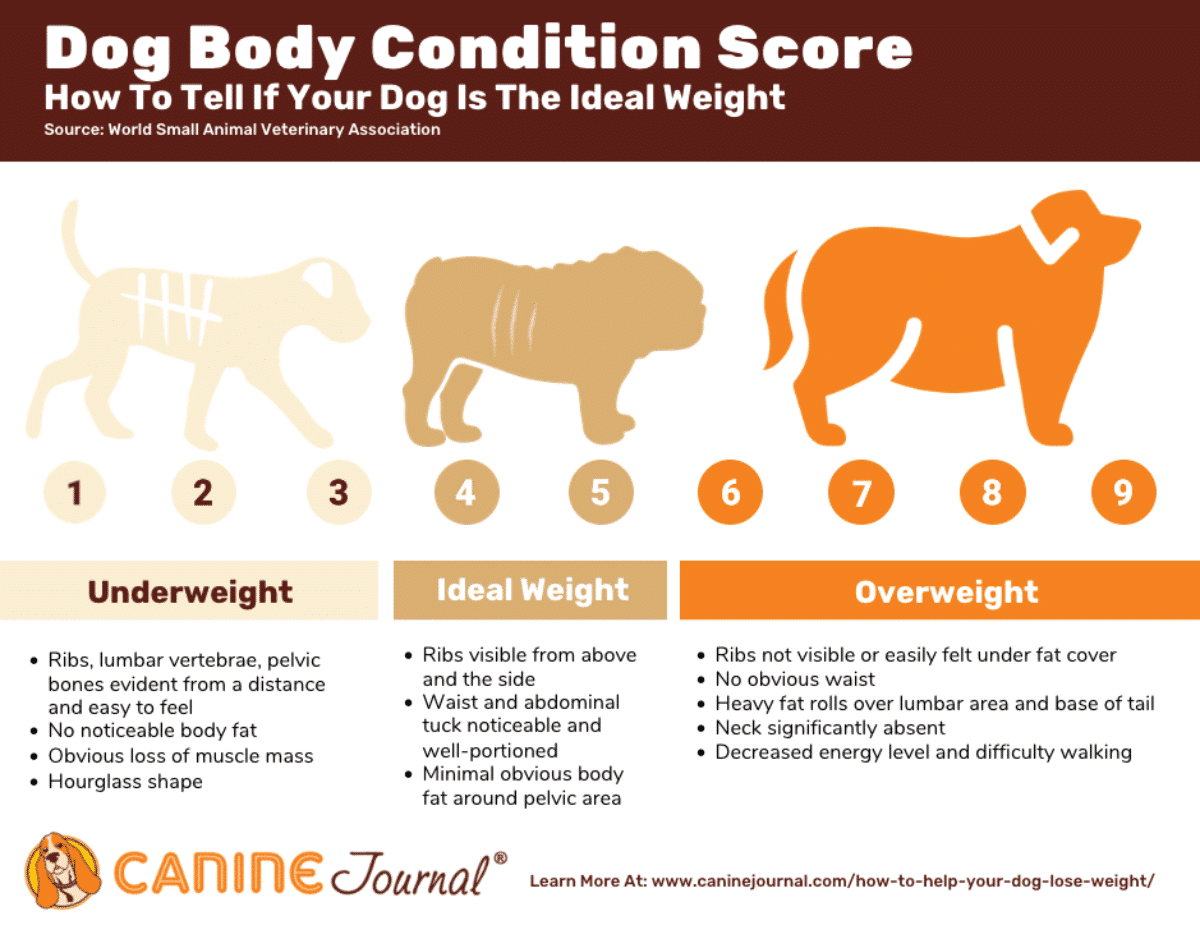
Remember, every dog is different. A stocky Bulldog and a lean Whippet have totally different ideal dog weights, and that’s okay. The key is understanding what’s normal for your dog’s breed and size, using the BCS as your north star.
Still confused about how to determine your dog’s body condition, as I explained above? Watch the video below from The Farmer’s Dog, a popular fresh dog food delivery service. It gives you a visual tutorial for several dog sizes and coat lengths to help you determine your pup’s body condition. I’ve found it extremely helpful.
Dog Weight Chart By Breed
Using a BCS system is the best way to tell if your furry friend is at a healthy weight. But it can help to start with a weight chart just to give you a general idea. So, if you’re asking yourself, “How heavy should my dog be?”, a dog weight chart by breed like our one below is a great place to start. These charts give you a general idea of what a healthy dog weight looks like for specific breeds, whether you have a tiny Chihuahua or a hefty Great Dane.
Healthy Weight Ranges For Popular Breeds
Breed-specific weight ranges aren’t pulled out of thin air. They’re based on veterinary research, breed club standards, and decades of canine health data. Here are a few quick examples from a standard dog weight chart. Remember that many of these ranges are very wide and don’t account for gender. Generally, females should fall to the lower end of the range, while males weigh more.
This alphabetical chart doesn’t cover all breeds by any means, but it includes many of the popular breeds in the U.S. I’ve also included several popular designer breeds.
| Breed | Average Weight Range |
|---|---|
| Afghan Hounds | 50-60 lbs |
| Airdale Terriers | 40- 65 lbs |
| Akitas | 70-120 lbs |
| Alaskan Malamutes | 75-85 lbs |
| American Staffordshire Terriers | 55-65 lbs |
| Australian Cattle Dogs | 30-35 lbs |
| Australian Shepherds | 40-65 lbs |
| Basenjis | 20-25 lbs |
| Basset Hounds | 40-60 lbs |
| Beagles | 18-30 lbs |
| Bearded Collies | 45-55 lbs |
| Belgian Malinois | 55-75 lbs |
| Bernese Mountain Dogs | 75-110 lbs |
| Bichon Frises | 10-16 lb |
| Black And Tan Coonhounds | 65-110 lbs |
| Bloodhounds | 80-110 lbs |
| Border Collies | 30-45 lbs |
| Border Terriers | 11-15 lbs |
| Boston Terriers | 10-25 lbs |
| Bouvier Des Flanders | 70-110 lbs |
| Boxers | 50-75 lbs |
| Brittany Spaniels | 30-40 lbs |
| Brussels Griffons | 8-10 lbs |
| Bulldogs | 40-50 lbs |
| Bullmastiffs | 100-130 lbs |
| Bull Terriers | 50-70 lbs |
| Bull Terriers (Miniature) | 24-32 lbs |
| Cairn Terriers | 12-16 lbs |
| Cardigan Welsh Corgis | 24-38 lbs |
| Cavalier King Charles Spaniels | 13-18 lbs |
| Chihuahuas | 4-6 lbs |
| Chinese Crested | 8-12 lbs |
| Chinese Shar-Peis | 45-60 lbs |
| Chow Chows | 45-70 lbs |
| Cockapoos | 12-24 lbs |
| Cocker Spaniels | 26-34 lbs |
| Collies | 50-75 lbs |
| Dachshunds (Standard) | 16-32 lbs |
| Dachshunds (Miniature) | 8-10 lbs |
| Dalmatians | 45-75 lbs |
| Doberman Pinschers | 60-95 lbs |
| English Cocker Spaniels | 26-34 lbs |
| English Setters | 45-80 lbs |
| English Springer Spaniels | 40-50 lbs |
| Flat-Coated Retrievers | 60-70 lbs |
| Fox Terriers | 16-18 lbs |
| French Bulldogs | 19-28 lbs |
| German Shepherds | 50-90 lbs |
| German Shorthair Pointers | 45-75 lbs |
| Goldendoodles (Miniature) | 15-30 lbs |
| Goldendoodles (Standard) | 40-50 lbs |
| Golden Retrievers | 55-75 lbs |
| Gordon Setters | 45-80 lbs |
| Great Danes | 110-175 lbs |
| Great Pyrenees | 85-125 lbs |
| Greyhounds | 60-70 lbs |
| Havanese | 7-13 lbs |
| Irish Setters | 60-70 lbs |
| Irish Terriers | 25-27 lbs |
| Irish Wolfhounds | 105-120 lbs |
| Italian Greyhounds | 7-14 lbs |
| Jack Russell Terriers | 14-18 lbs |
| Keeshonds | 35-45 lbs |
| Labrador Retrievers | 55-80 lbs |
| Labradoodles | 50-65 lbs |
| Labradoodles (Miniature) | 15-25 lbs |
| Lhasa Apsos | 12-18 lbs |
| Maltese | 4-6 lbs |
| Mastiffs | 120-200 lbs |
| Miniature Pinschers | 8-10 lbs |
| Newfoundlands | 100-150 lbs |
| Norwegian Elkhounds | 48-55 lbs |
| Norwich Terriers | 10-12 lbs |
| Old English Sheepdogs | 60-100 lbs |
| Papillons | 7-10 lbs |
| Pekingese | 6-10 lbs |
| Pembroke Welsh Corgis | 25-30 lbs |
| Pomeranians | 3-7 lbs |
| Pomsky | 20-30 lbs |
| Poodle (Standard) | 45-70 lbs |
| Poodle (Miniature) | 10-15 lbs |
| Poodle (Toy) | 4-6 lbs |
| Portuguese Water Dogs | 35-60 lbs |
| Pugs | 14-18 lbs |
| Puggles | 15-30 lbs |
| Rat Terriers | 10-25 lbs |
| Rhodesian Ridgebacks | 70-85 lbs |
| Rottweilers | 80-130 lbs |
| St. Bernards | 120-180 lbs |
| Samoyeds | 35-65 lbs |
| Schipperkes | 10-16 lbs |
| Schnauzer (Giant) | 55-85 lbs |
| Schnauzer (Standard) | 30-45 lbs |
| Schnauzer (Miniature) | 12-15 lbs |
| Scottish Terriers | 18-22 lbs |
| Shetland Sheep Dogs | 18-20 lbs |
| Shiba Inus | 17-23 lbs |
| Shih Tzus | 9-16 lbs |
| Siberian Huskies | 35-60 lbs |
| Silky Terriers | 8-10 lbs |
| Staffordshire Bull Terriers | 24-38 lbs |
| Tibetan Terriers | 18-30 lbs |
| Toy Fox Terriers | 4-7 lbs |
| Vizslas | 45-60 lbs |
| Weimaraners | 55-85 lbs |
| Welsh Terriers | 18-20 lbs |
| West Highland Terriers | 15-21 lbs |
| Whippets | 25-40 lbs |
| Wirehaired Pointing Griffons | 40-60 lbs |
| Yorkshire Terriers | 4-7 lbs |
| Yorkshire Terriers (Teacup) | 1-3 lbs |
What If My Dog Doesn’t Fit The Chart?
Let’s be real, dog weight charts are a starting point, not a hard rule. If your dog is mixed breed, has an unusual body structure, or falls just outside the typical range, don’t panic. The key is to combine weight with body shape. That’s where tools like the dog body condition score (BCS) can help you assess whether your dog is truly underweight, overweight, or right on track.
Also, remember that muscle mass, bone structure, and lifestyle (hello, couch potato vs. agility star) all influence ideal dog weight. A 70-pound Lab that’s pure muscle is very different from a 70-pound Lab that’s struggling with extra fat.
What Causes Weight Changes In Dogs? (Medical Perspective)
When your dog starts gaining or losing weight without a clear reason, it’s time to look beneath the surface. While overfeeding or under-exercising often play a role, there are many medical and lifestyle factors that can cause your dog’s weight to shift. Understanding these root causes is essential for proper dog weight management and long-term health.

Why Do Dogs Gain Weight?
Weight gain in dogs isn’t always about too many treats. Sometimes, the problem is more complex and medical. Here’s what might be happening behind the scenes:
- Overfeeding Or Free-Feeding. Let’s face it, many of us, including me, love spoiling our dogs. But even a little “extra” can add up over time, especially for smaller breeds. Free-feeding (leaving food out all day) makes it hard to track how much your dog is actually eating, which can quickly lead to excess weight.
- Lack Of Exercise. Dogs of all sizes need regular physical activity. If your pup’s daily routine is mostly lounging, those calories aren’t getting burned. This is especially common in senior dogs or those recovering from injury.
- Spaying Or Neutering. After surgery, dogs often experience a dip in metabolism and an increase in appetite. This doesn’t mean your dog has to gain weight. It just means their feeding and activity routine may need adjusting.
- Hypothyroidism. This hormonal condition, particularly common in middle-aged dogs, slows down metabolism. Even if your dog eats a normal amount, they may gain weight, seem sluggish, or have dry skin and thinning fur.
- Cushing’s Disease. This is caused by excess cortisol, which often results in a bloated belly, increased appetite, and significant weight gain. Cushing’s disease is frequently misdiagnosed as “just getting older,” so be sure to flag it with your vet if you notice sudden changes.
If you’re trying to figure out how heavy your dog should be after one of these diagnoses, your vet may recommend a revised target weight that accounts for medical realities.
Why Do Dogs Lose Weight?
Unintended weight loss in dogs is often more serious and urgent than weight gain. Here are some of the most common causes:
- Parasites. Worms and other parasites are common in puppies and can cause rapid weight loss, bloated bellies, and poor coat condition. Even adult dogs can be affected, especially if they spend time outdoors or around other pets.
- Dental Disease. When your dog’s mouth hurts, eating becomes a chore. Gum disease, broken teeth, or abscesses can make it painful to chew, especially crunchy kibble. As a result, your dog may avoid meals altogether or eat significantly less.
- Gastrointestinal Issues. Dogs with IBD, food allergies, or pancreatic insufficiency may eat plenty but fail to absorb nutrients properly. This leads to slow, steady weight loss despite what seems like a healthy diet.
- Chronic Conditions Or Cancer. If your dog is losing weight without any obvious reason, your vet may want to rule out serious illnesses. Many chronic diseases cause reduced appetite, muscle wasting, and energy loss.
- Stress Or Anxiety. Believe it or not, emotional health plays a big role in weight. A dog who’s anxious, depressed, or adjusting to a significant life change may lose interest in food, even if nothing is physically wrong.
When To Involve Your Vet
If your dog’s weight is trending up or down and you’re unsure why, don’t wait too long to take them to your vet. Changes that seem small, just a couple of pounds, can be significant, especially in smaller dogs. Early intervention helps prevent complications and potentially allows you to catch underlying issues before they become major problems.
Your vet can perform a full physical exam, check your dog’s body condition score, and run any necessary bloodwork to pinpoint what’s going on. From there, you can develop a personalized plan that brings your dog back to their ideal dog weight and keeps them on a healthy track.
Can Pet Insurance Help?
When your dog’s weight fluctuates without explanation, the vet bills can add up fast. Blood tests, diagnostic imaging, and treatment for conditions like cancer, hypothyroidism, or Cushing’s disease aren’t cheap. That’s where pet insurance can make a big difference. It can help cover the cost of diagnosing and managing medical conditions that may affect your dog’s weight. It provides you with financial support and allows you to focus on getting them healthy. Investing in pet insurance early means you’re better prepared when unexpected weight-related or other health issues arise. Our team has reviewed the best pet insurance to help you find the right option for you and your pup. You can also use our free pet insurance quote engine below.
How To Safely Manage Your Dog’s Weight (Vet Tips)
Whether your dog needs to shed a few pounds or pack some on, safe dog weight management is all about balance, not quick fixes. Crash diets, overexercising, or feeding high-fat “bulk-up” snacks can actually do more harm than good. The key? A slow, steady, and sustainable plan backed by veterinary guidance.
Feeding Tips For Weight Loss Or Gain
For overweight dogs:
- Measure Every Meal. No eyeballing. Use a measuring cup or a digital scale to ensure precise portions based on your dog’s ideal weight.
- Choose A Weight-Control Formula. Many brands offer high-fiber, lower-calorie options to help your dog feel full without the extra calories.
- Limit Treats. Treats should make up no more than 10% of your dog’s daily intake. Don’t skip them. Instead, try low-calorie treats or dog-safe vegetables like carrot sticks.
Still wondering how to help a dog lose weight naturally? Start with simple swaps and consistent routines. The goal is progress, not perfection.
See our reviews of the best dog food for overweight pooches for some premium options you may want to consider.
For underweight dogs:
- Check For Medical Causes First. Before adjusting their diet, rule out issues like parasites or dental pain that may be affecting appetite.
- Switch To Nutrient-Dense Food. High-protein, high-calorie formulas can help your dog gain healthy weight, not just fat.
- Feed Smaller Meals More Often. This helps stimulate appetite and improve digestion, especially in dogs recovering from illness or stress.
See our reviews of the best dog food for weight gain that might be ideal for your pup.
Exercise Plans By Size & Breed
Exercise needs vary widely depending on your dog’s size, age, and energy level. Every dog is different, even those within the same breed. Here’s a quick guide:
- Small Breeds (e.g., Yorkies, Dachshunds): Short walks and indoor play sessions (15–30 mins/day) help burn calories without overexertion.
- Medium Breeds (e.g., Beagles, Border Collies): Brisk walks, fetch, or agility games (30–60 mins/day) are ideal for weight control and mental stimulation.
- Large Breeds (e.g., Labs, German Shepherds): Low-impact activities like swimming or longer walks (45–90 mins/day) support joint health while promoting fat loss.
Be sure to match your dog’s activity to their fitness level. A dog weight chart can help set realistic expectations, but movement is what really shifts the needle. Check out our guide on how much you should walk your dog to help.
Mental Stimulation To Reduce Emotional Eating
Just like humans, some dogs eat out of boredom. Combat emotional eating with:
- Puzzle feeders or slow bowls
- Snuffle mats for mealtime enrichment
- Interactive toys that dispense food
- Training sessions that use kibble as rewards
These strategies not only make mealtime more engaging, but they also slow down overeaters and stimulate under-eaters. This makes it easier to keep your pooch at a healthy dog weight.
Stay Consistent, But Stay Flexible
No two dogs are exactly the same. Use tools like the dog body condition score, regular weigh-ins, and behavior tracking to see what’s working and when it’s time to adjust. Most importantly, loop in your vet for guidance. So, how heavy should your dog be? The answer may change as they age, change activity levels, or recover from illness.
Dog Weight By Life Stage (Puppy To Senior)
Wondering how heavy should my dog be at different stages of life? Just like people, dogs undergo physical changes as they grow, mature, and age. Plus, their ideal dog weight shifts along the way. A healthy dog weight for a bouncy puppy isn’t the same as it is for a mellow senior. Knowing what’s normal by age can help you avoid weight issues before they affect your dog’s health.
Puppy Weight Guide: Growing Up Strong
Puppies grow fast, and their weight can change weekly. You’ll notice rapid gains in the first few months, especially in large or giant breeds. While weight gain is normal, it’s essential to avoid overfeeding. Extra calories during growth spurts can lead to joint problems later in life.
Look for:
- Steady, proportional weight gain, not sudden spikes
- Visible ribs at rest (mildly) are a sign your pup is lean but healthy
- Vet check-ins at each stage to ensure your puppy is following a healthy growth curve
A good puppy weight guide is usually based on expected adult size. If you’re unsure of your dog’s breed mix, talk to your vet. They can give you a ballpark figure and recommend feeding adjustments along the way.
Adult Dogs: Maintain, Don’t Guess
Once your dog reaches full size, typically around 12 to 18 months for most breeds, it’s time to shift from growth to maintenance. This is the sweet spot for setting a baseline healthy dog weight. At this stage, factors like exercise, diet, genetics, and even spay/neuter status all play a role in maintaining the right weight. Use a dog weight chart by breed, assess your dog’s body condition score, and talk to your vet if you’re unsure whether your dog’s current weight is ideal.
This is often when pet parents ask, “Is my dog overweight?” or “How much should my dog weigh now?”, which is the right time to ask.
Senior Dog Weight: Don’t Let Age Confuse You
As dogs age, their metabolism slows, and their activity levels often dip. That can lead to gradual weight gain, or sometimes unintentional weight loss. Unexplained weight loss in seniors may point to dental disease, cancer, kidney issues, or poor nutrient absorption. Weight gain could stem from reduced activity, pain, or chronic conditions like arthritis or hypothyroidism.
Maintaining a healthy dog weight during your dog’s golden years helps protect their joints, support organ function, and improve overall comfort. Check weight regularly, and don’t chalk up changes to “just aging.” Staying ahead of weight shifts can add quality and time to your dog’s life.
Our Experience With Achieving A Healthy Dog Weight
Adopting a dog is a heartwarming journey, but it often comes with unexpected challenges, especially when it comes to weight management. In our article, “Dog’s Weight Loss Journey After Adoption,” we share one of Canine Journal’s very own inspiring stories of Rio, who, with proper care and dedication, transformed their health by achieving a healthy weight. This real-life example highlights the importance of understanding and maintaining your dog’s ideal weight, as discussed in this guide. And it also serves as a reminder that if Rio can do it, any pup can! By combining knowledge with compassion, you can ensure your furry friend leads a vibrant and healthy life.

Beyond The Scale: Everyday Essentials For A Healthier Dog
Looking to support your dog’s overall health beyond just weight? Probiotics can improve digestion and gut health, which is especially helpful for dogs with sensitive stomachs or weight fluctuations. Daily multivitamins help fill nutritional gaps in your dog’s diet, especially if they’re eating less or on a restricted meal plan. Fish oil supplements are a great source of omega-3 fatty acids, which support healthy skin, coat, joints, and even weight regulation. And if your dog isn’t drinking enough, a water fountain can encourage better hydration, which is an often overlooked factor in appetite, digestion, and energy levels. Small changes like these can make a big difference in helping your dog feel their best from the inside out. Just remember to speak with your vet about any dietary changes you’re thinking about making.
Does your dog have a hard time managing their weight? Perhaps their weight fluctuates? We love to hear from our readers, so please share your dog’s weight stories with us in the comments.
Why Trust Canine Journal
Sally brings over 20 years of experience in human health sciences communication, with the past decade focused on pet health, behavior, and wellness. As a key member of the Canine Journal team, made up of passionate dog owners and canine care professionals, she helps research and test the best pet products on the market. Whether we’re exploring supplements or writing about topics like healthy dog weight, our mission is to support your dog’s well-being with trusted, expert-backed advice.
